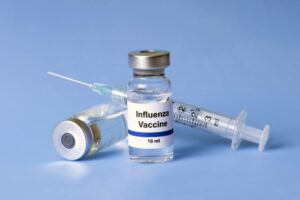What information do we collect about you?
We collect information when you voluntarily complete any form on this website. We use web server Logs to monitor, measure, analyse, improve and troubleshoot services.
Friends and Family Test
We use the information entered into this form only for the purposes of processing your Friends & Family Test submission. Information entered into this form is stored and accessed securely by designated Practice staff.
Issues raised in comments may be discussed between relevant members of the Practice. The information is used for quality monitoring purposes, in line with the expectations of the patients submitting the feedback.
The form does not require personal information. Any personal information transmitted via this form may be anonymised by the Practice when this is required to ensure compliance with General Data Protection Regulation.
All submissions are collated and sent to NHS England.
This information is retained for up to
28 days.
Server Logs
The web server hosting our website automatically collects audit logs of website usage. These logs include the IP addresses of website users. Web server logs are used to monitor, measure, analyse, improve, and troubleshoot services only. They are not published and are used solely to maintain service quality.
This information is not shared with any external third party organisations.
This information is retained for up to
one year.
Access To Your Information and Correction
You have the right to request a copy of the information that we hold about you. If you would like a copy of some or all of your personal information, please
Contact Us .
We want to make sure that your personal information is accurate and up to date. You may ask us to correct or remove information you think is inaccurate.
In order to comply with your request we will ask you to verify your identity.
HTTPS
This website is https-secured, which means communication between the user’s web browser and the server hosting the website is encrypted and cannot be intercepted en-route. It also means a padlock icon is visible in the browser address bar.
Cookies
Our website contains information about the cookies used by our website. This also provides details of how to block cookies if required.
Our website includes activity tracking via Google Analytics. Our tracking code has the "anonomise ip" option turned
on which forces Google to anonymise the user activity data and does not store complete IP addresses.
Read more about IP Anonymisation in Google Analytics.
View Google's commitment to GDPR compliance.
Content Delivery Networks
This website uses the following content delivery networks for vendor libraries:
Cloudflare
All of our vendor JS and CSS libraries are served from a Cloudflare CDN (
https://cdnjs.cloudflare.com/).
View Cloudflare's commitment to GDPR compliance.
Google Fonts
Some fonts used on this site are served from Google Fonts (
https://fonts.google.com/).
View Google's commitment to GDPR compliance.
Other websites
Our website contains links to other websites. This privacy policy only applies to this website so when you link to other websites you should read their own privacy policies.
This Website directs patients out to
Patient Access Online Services a third-party secure website service for appointments, request repeat prescriptions and viewing some parts of their medical records.
NHS Library
Content that is provided by the NHS choices library is tracked by NHS Digital.
View NHS Digital's commitment to GDPR compliance.
Changes to our privacy policy
We keep our privacy policy under regular review and we will place any updates on this web page. This privacy policy was last updated on
4th April 2023.
Please use our
Contact uspage if you have any questions about our privacy policy or information we hold about you.


